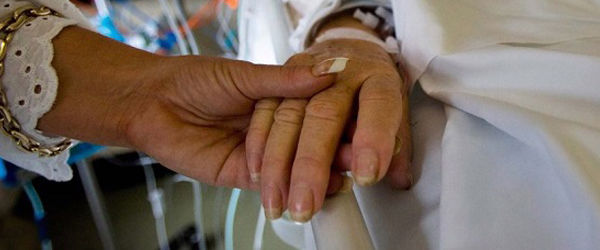Editor’s note: This is the first of a four-part series entitled "First Nations: Honoring Sacred Traditions," prepared by the archdiocesan Ministry for Native American Concerns. It is not unusual for people on camping trips to dispose of unused boiled water by tossing it on the ground. But in my youth, we were told not to throw the water we boiled on the ground. Why? Because it would scorch or kill the little creatures in the soil and even some of the plants.The elements of creation were made by Grandfather Creator before mankind was created. This is true in the stories of many First Nations and in the Book of Genesis. Light, air, rock or land and water and the animals are our Elders in Creation. It had to be this way; after all, where would we live if there was no land, water and plants?Many non-Native people say the Indigenous People (aka, Native Americans or Indians) worship nature. This is not so; at least I was never taught this. We worshiped the Great Father of all creation, thus the reason many of us call him our Great or Grand Father, Almighty Father. Perhaps the misconception by immigrants of who we worship has been brought about by our open expression of gratitude and respect for our Elder Brothers and Sisters of creation. No created being should worship another created person. However, we may give a special reverence to creation.Science and our Ancestors say all weather comes from the West. The Thunder Beings and dark clouds bring rain to the dry earth and to parched hearts. For this we give thanks. Winter tempers our hearts and disciplines our minds to make right decisions and to gain wisdom as we grow older. In the northern climes, Grandfather puts a blanket of snow over Grandmother Earth so she can rest. The wise among us set aside our weapons and recall the stories that teach us to live in peace and harmony.Warm winds come from the South in spring, melting the snow from the earth and the ice from our hearts. Streams deliver the snow-melt water to gardens. Young salmon and other fish relatives head down streams to the great waters. They will return in some years to these streams. Some will give themselves away so we will not be hungry. Tribal nations have different customs of giving thanks for the animals that give themselves away for our well-being. Many First Nations put down some tobacco thanking God and thanking the Ancestors of the fish who agreed to give some of their grandchildren to us. This is our prayer before meals.We need to apologize for damming up some of the rivers that have blocked fish from returning to their ancestral spawning homes. Millions of fish died and untold millions more were never born because of the dams and because of poisons from mining projects entering the waters.Stagnant water is refreshed in the natural water filters called swamps and marshes. Many were filled in for farm land. The remaining ones, however, can do little to clean and refresh industrial polluted water. This year, thousands of “Water Walkers” set out to find ways to honor and protect the waters. In June, many of the Grandmother Water Walkers met at the Bad River Ojibwe Reservation along the shore of Lake Superior in Wisconsin, having begun their journey in April from various points on the North American continent. Participating walkers came from all 50 states, the Canadian provinces and Mexico. Great walks respecting creation and honoring our Ancestors and one another are held each year. There are many different kinds of walks covering thousands of miles. The churches are always welcome to join in.Respect for creation is a sacred calling, not a political statement. The trees pointing heavenward and many others’ plant relatives have served us well. We have been asked to show our thanks. We can do this best by honoring the earth and respecting her and treating our Grandmother properly. In this way she will continue to take care of us.Pine trees count the years with each row of branches. A wide space between branches indicates a wet year, a narrow space a dry year. There is much the trees can teach us if we listen respectfully.We did not create the web of life. Whatever we do to it, we do to one another and to ourselves. Our decisions this year will affect the next seven generations.Brother Joshua Makatewikonaweg Minwahjimo is a professed member of the Society of St. Paul. He is Metis (Anishinabe/Euro-American) and author of the “Hawk Dancer” novels. HawkDancer.com.

